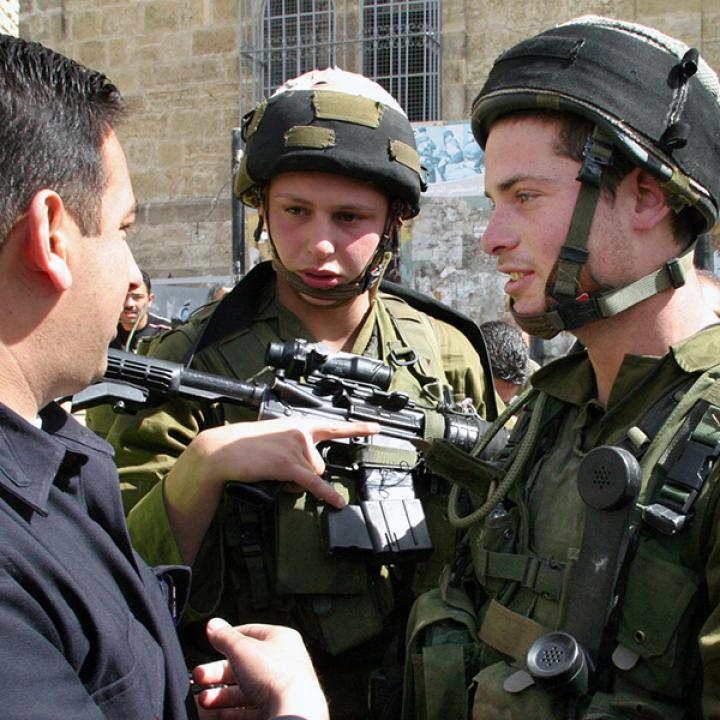
- Policy Analysis
- Articles & Op-Eds
What Will Happen If the Palestinians Really End Security Cooperation?

The PLO Council voted last week to call for suspending PA security cooperation with Israel, a decision that could spur increased violence and gut the only thing keeping the PA in power.
The following is an excerpt from an article that originally appeared on the Tower website. Download the PDF to read the full version.
On the night of July 24, 2014, anywhere between 10,000 and 25,000 Palestinians squared off against Israeli security forces at the Qalandiya checkpoint between Ramallah and Jerusalem. It was the largest demonstration the West Bank had seen for at least a decade. In running battles that lasted several hours, protestors shot fireworks and hurled stones at the Israeli forces, and there were even reports of gunfire -- a rarity since the days of the second intifada. Israeli army and Border Police officers responded with force, leaving two Palestinians dead and some 300 injured.
Coming as it did at the height of last summer's Gaza war, there were well-founded fears that the demonstration could trigger a general uprising in the West Bank. Yet follow-up demonstrations failed to attract similar numbers; no new intifada materialized; and, even compared to Jerusalem, the West Bank has remained relatively stable.
The question is, why was the Qalandiya demonstration so large, attracting not just the usual teenage demographic of Palestinian protestors, but women, children, and the elderly? And more importantly, why was it a one-off event?
The answers to these questions have everything to do with the current state of the most positive and successful aspect of Israeli-Palestinian relations: Security coordination. This is, in fact, the one thing that has managed to keep the West Bank under control, and prevent events like Qalandiya from setting off a chain reaction that could end in a third intifada.
And yet, with Palestinian President Mahmoud Abbas' recent decision to join the International Criminal Court -- with the stated intention of pursuing war crimes charges against Israeli officials and soldiers -- even this relationship is now in peril. In a November 30 interview with an Egyptian daily, Abbas stated that the ICC gambit was only "the first step" in applying pressure on Israel. "This step won't do much good," he went on to admit, "but we have two other steps." The first would be "ending all security coordination" between Israel and the Palestinian Authority (PA). "There will be no ties, no security, and no talks with anyone." After that, he continued, the only step left to take would be to dissolve the PA and hand the proverbial keys back to Israel.
Abbas has already made good on his ICC threat. If he continues on the path he describes, his next move will be to end the security relationship with Israel. But unlike flourishing a pen on live television and signing international treaties, which takes little effort, severing security ties with Israel entails monumental risks on the ground for the Palestinians. It is not mere symbolism. That one night in Qalandiya provides a glimpse of just how dangerous and self-defeating such a move would be. More importantly, it could be a harbinger of how and why the era that began with the signing of the Oslo Accords in 1993 might be coming to an end...
The Tower


